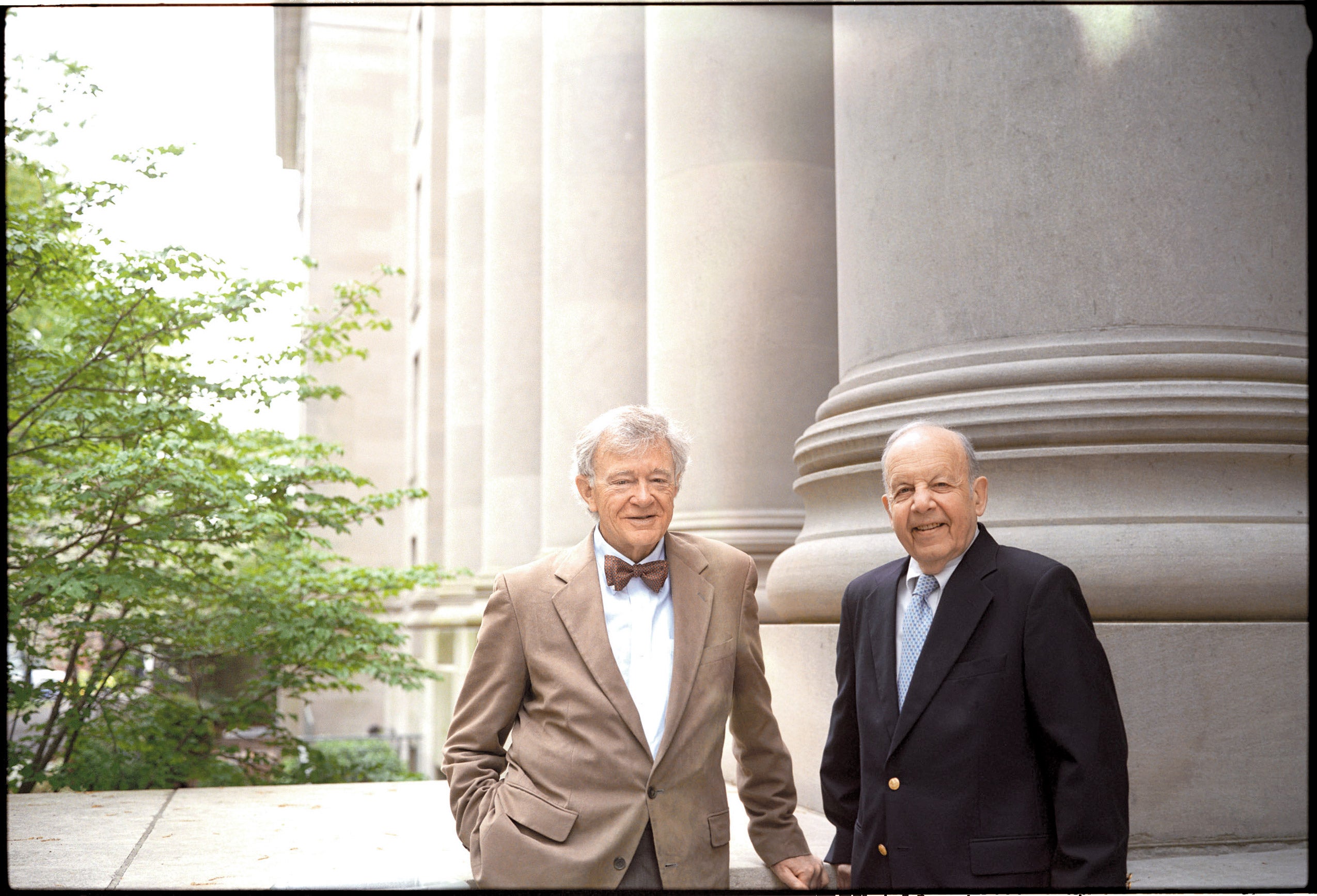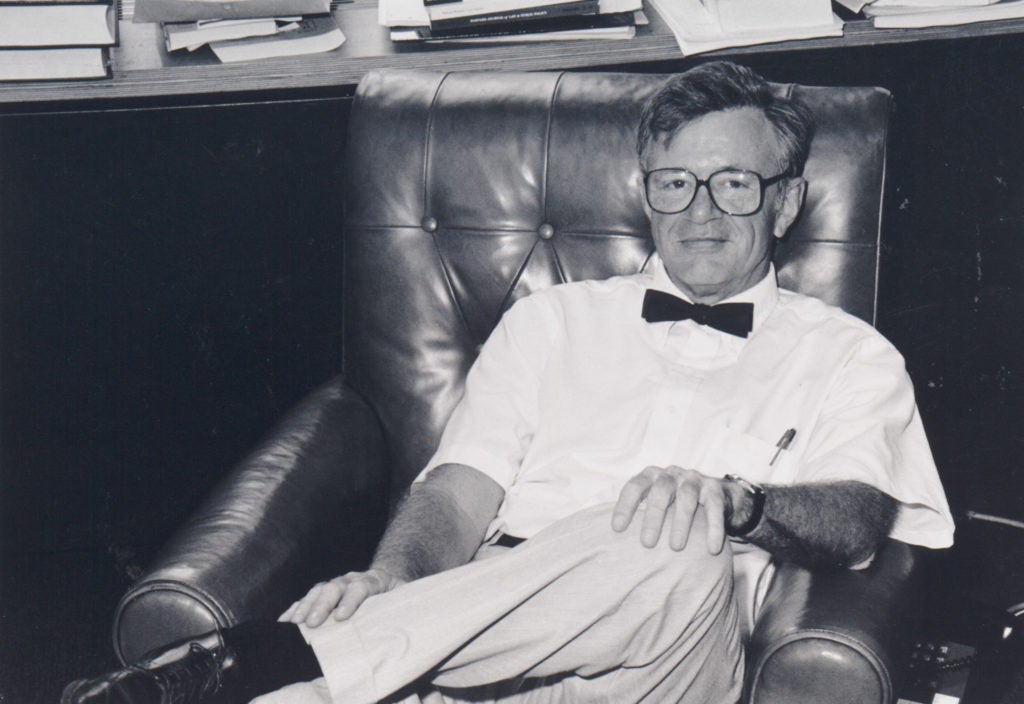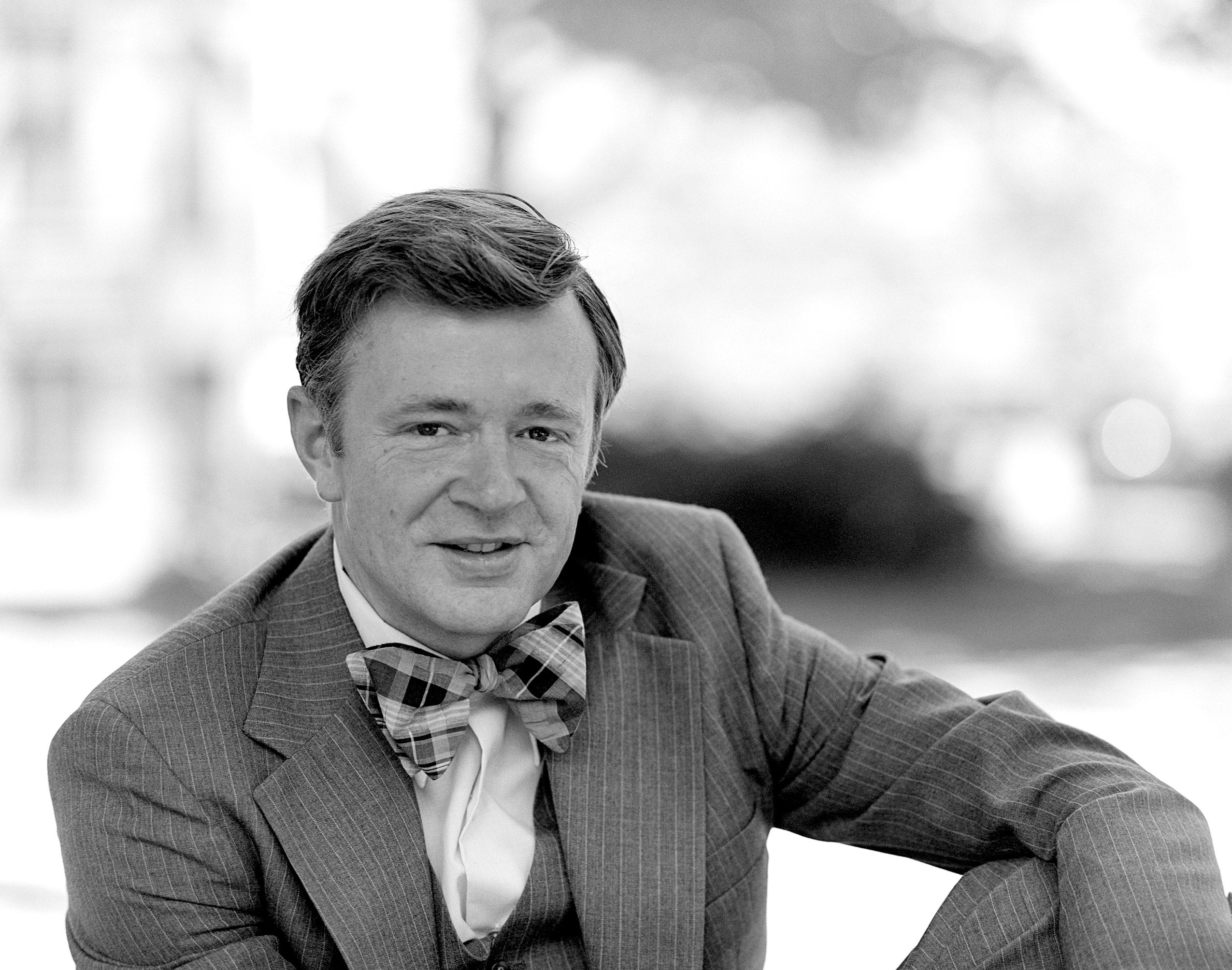William D. Andrews ’55, the Eli Goldston Professor of Law Emeritus at Harvard Law School, died on May 20, 2017. He was 86.
“Bill was a brilliant scholar, influential teacher, and to many of us, a dear friend,” said HLS Dean Martha Minow. “He shaped the fields of partnership and corporate tax; he brought excellence and fairness. He was also a wonderful, caring colleague and mentor whose humor, patience, and his bow tie improved every encounter. He will be greatly missed.”
A longtime tax expert who clarified the world of tax law for generations of lawyers, Andrews focused his research on taxation in general, and taxation of income from partnerships and corporation transactions. His articles on tax law revolutionized thinking in the field, according to his former student Edward J. McCaffery ’85, a tax expert now on the faculty at USC Gould School of Law, who wrote a tribute to Andrews in the Harvard Law Bulletin when Andrews took emeritus status in 2007.

“There is much to admire about Bill’s scholarship, but what I best know and love Bill from are three articles published in the Harvard Law Review, in 1972, 1974 and 1975—known to cognoscenti simply as Andrews 72, 74 and 75,” wrote McCaffery.
While many have written about the importance of finding and taxing all income, from whatever source derived, Andrews offered the leading explanation and defense of a cash-flow consumption tax. His 1974 Harvard Law Review article “A Consumption-Type or Cash Flow Personal Income Tax” is generally regarded as the genesis for serious thinking about the consumption tax as a replacement for the income tax.
“Much of income tax theory in the 20th century was dominated by the so-called Haig-Simons definition of income, which holds essentially that Income equals Consumption plus Savings (I = C + S)—that all money or wealth (income) is either spent (consumption) or not (savings),” wrote McCaffery. “The simple genius of Bill Andrews was to look to the right-hand, or uses side. What we are taxing—in an income tax—is consumption plus savings. This change of perspective effected a Copernican revolution in our thinking about tax.”
Other representative articles by Andrews include “Inside Basis Adjustments and Hot Asset Exchanges in Partnership Distribution,” 47 Tax Law Review 3 (1991). He was also author of the casebook “Basic Federal Income Taxation.” The 7th edition was co-written with Peter J. Wiedenbeck and published in 2015 by Wolters Kluwer.

Andrews began teaching at HLS in 1961 as a lecturer on law, and he became an assistant professor of law in 1963. He was named a professor of law in 1965, and then in 1984, he was appointed the Eli Goldston Professor of Law. Andrews took emeritus status in 2007. Earlier in his career, from 1959 to 1963, he was an attorney at Ropes & Gray in Boston. He also served as a consultant for Sullivan & Worcester and for the United States Department Treasury, from 1966 to 1968.
He was a longtime member of the American Bar Association and the American Law Institute, where he contributed to a number of ALI reports and projects, including the Federal Income Tax Project. And he served as the director and associate general counsel of the Harvard Cooperative Society in the 1970s.
In 2015, Andrews received the National Tax Association’s Daniel M. Holland Medal. The award, the most prestigious given by the NTA, recognizes lifetime achievement in the study of the theory and practice of public finance.
Andrews received a bachelor’s degree in English from Amherst College in 1952 and a J.D. from Harvard Law in 1955. He was awarded an honorary doctor of laws from Amherst College in 1977. After law school, Andrews served as a lieutenant in the U.S. Naval Reserve from 1955 to 1958.
He and the former Shirley Herrman, a music teacher, married in 1953, and had six children. The family will host a memorial service in the fall.
